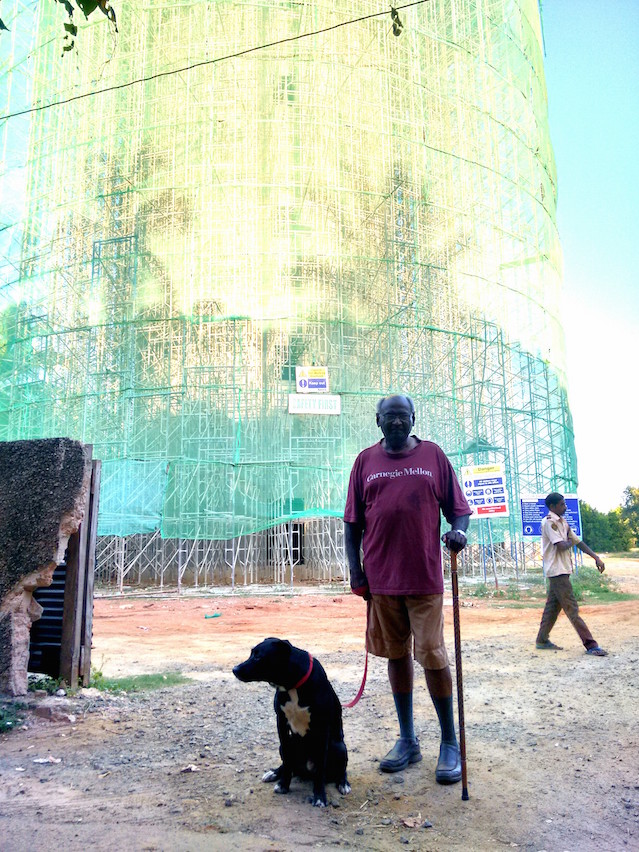A Brief Colonial History Of Ceylon(SriLanka)
Sri Lanka: One Island Two Nations
A Brief Colonial History Of Ceylon(SriLanka)
Sri Lanka: One Island Two Nations
(Full Story)
Search This Blog
Back to 500BC.
==========================
Thiranjala Weerasinghe sj.- One Island Two Nations
?????????????????????????????????????????????????Thursday, March 30, 2017
The Right To Information Act No.12 Of 2016: A Rare Bright Spot In Our Flawed Democracy

By S. Ratnajeevan H. Hoole –March 29, 2017
Failures and Successes
Elected to restore democracy, the interminable postponement of elections
on petty excuses is a big blot. Non-progress on reconciliation is best
captured by its partner, the TNA, saying Tamils have reached the end of
their tether. The independent Commissions have no funds to include all
members in the work (Election Commission) or funds but no work or TOR
(Delimitation Commission). Minister Patali Champika Ranawaka says the
Commissions are toothless white elephants, and that the Audit
Commission and National Procurement Commission cannot function for lack
of enabling legislation. The Police Commission chairman resigned giving
an unbelievable excuse because he could not deliver on account of
obstacles.
Even the co-sponsorship of UNHRC Resolution 34/L.1 which promises “to
fully implement the measures identified in the resolution [30/1] of
2015,” is not convincing of our intentions on reconciliation. For, even
as 30/1 calls for the prosecution of war criminals with the use of
foreign judges and is unfulfilled, the President and PM say there will
never be foreign judges. Moreover, the President adds in hot speeches
before the Army and Monks that he will never allow “national heroes” who
massacred Tamil civilians in defeating the LTTE to be charged.
With that horrible record, there are some notable achievements, however,
that fail to get the credit they deserve. One important achievement is
the absence of fear. Another is that water-starved Jaffna now has many
huge water tanks coming up. As the infrastructure is nearing readiness,
it is bickering among us Tamils on whether Water from Kilinochchi can be
diverted that introduces uncertainty over water for Jaffna. Water tanks
without water would be like our democracy without elections. If that
water is refused, the tanks will use seawater desalinated by reverse
osmosis, which however will be expensive.
RTI – Towards Open Meetings
 The most recent, significant achievement in governance is our Right to Information Act
(RTIA). Many countries claim to be democracies but all are flawed. What
is important is that we move towards being a democracy. Over 100
countries around the world have RTI Laws, Sweden’s 1766 Freedom of the
Press Act having been first. Such acts are usually borne of a thirst for
freedom following an era of autocracy as ours was after our shackles
were removed in 2015. RTIA empowers us to find out what our rulers are
doing by giving us access to government documents. Our global RTI
rating is at third place. Scoring 131 out of 150, we are just behind
Mexico (136) and Serbia (135), barely ahead of India at 128 (whose laws
were borne of the suppression of information, press censorship and abuse
of authority during the Emergency of 1975-77). Surprisingly many
Western European countries and the US (83), Canada (90), Australia (83)
and China (70) score poorly, well behind Russia (98).
The most recent, significant achievement in governance is our Right to Information Act
(RTIA). Many countries claim to be democracies but all are flawed. What
is important is that we move towards being a democracy. Over 100
countries around the world have RTI Laws, Sweden’s 1766 Freedom of the
Press Act having been first. Such acts are usually borne of a thirst for
freedom following an era of autocracy as ours was after our shackles
were removed in 2015. RTIA empowers us to find out what our rulers are
doing by giving us access to government documents. Our global RTI
rating is at third place. Scoring 131 out of 150, we are just behind
Mexico (136) and Serbia (135), barely ahead of India at 128 (whose laws
were borne of the suppression of information, press censorship and abuse
of authority during the Emergency of 1975-77). Surprisingly many
Western European countries and the US (83), Canada (90), Australia (83)
and China (70) score poorly, well behind Russia (98).
One of Many Water Tanks; this at Naayanmaarkattu will be ready by June
The US has a low score because its Freedom of Information Act (FOIA) was
enacted in 1966 before the world’s legacy of human rights blossomed,
and after years of debate over the opposition of President Lyndon
Johnson. FOIA emphasizes the devolved nature of power and leaves it to
state governments to make their own FOI laws. FOIA has many exemptions.
Officials need not comply with requests to do research, answer written
questions or create records like lists of statistics. RTIA is far ahead.

